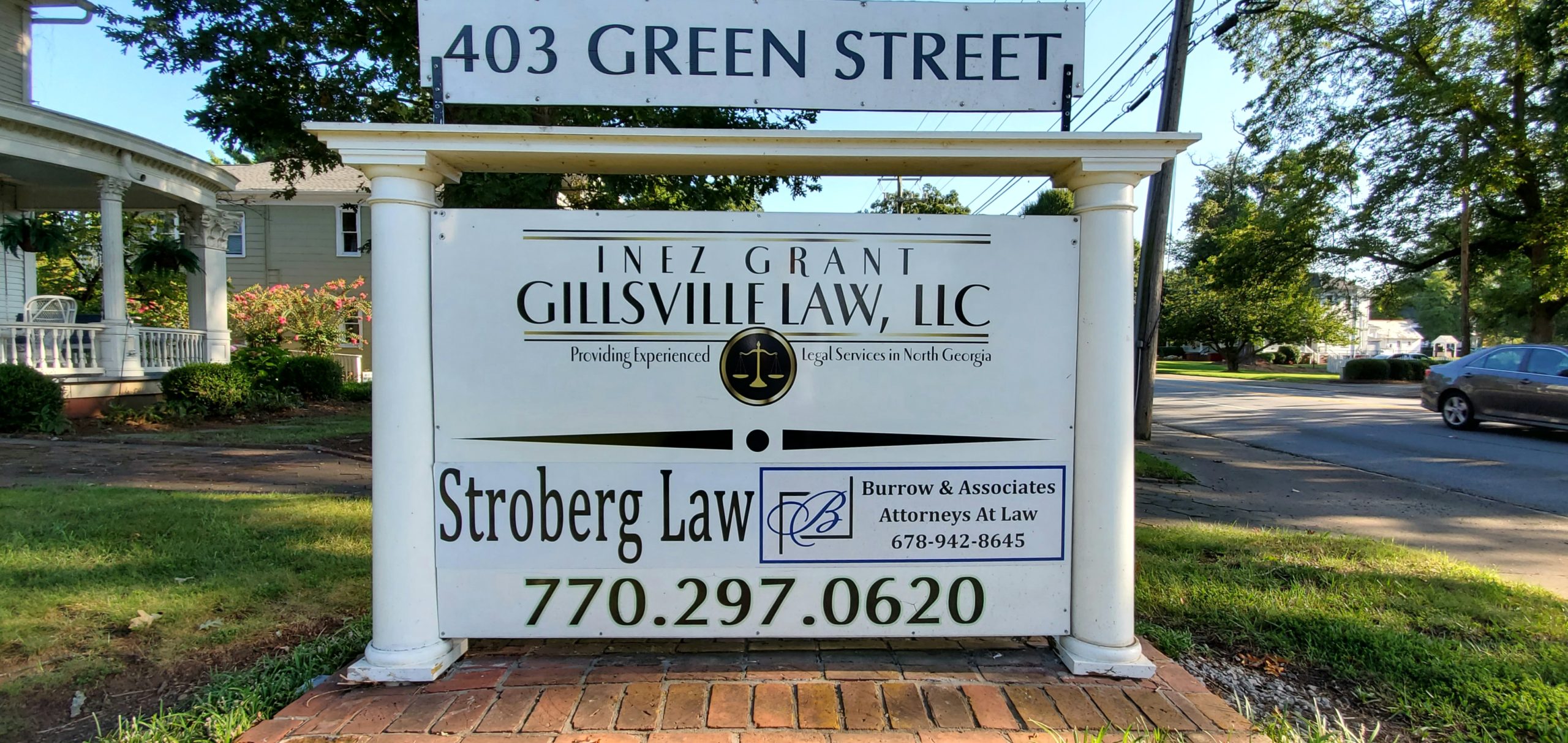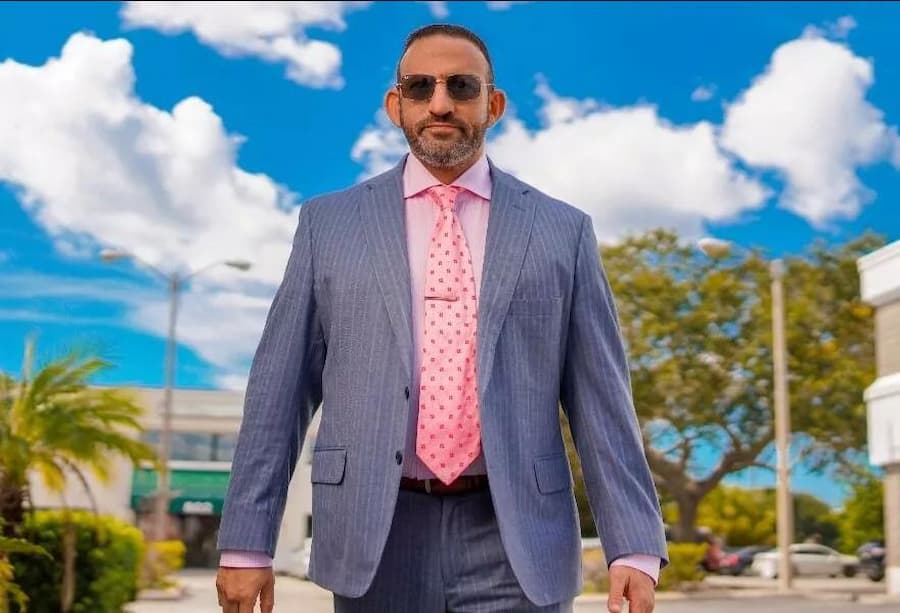Gainesville Personal Injury Lawyer: Navigating the complexities of personal injury claims in Gainesville, Florida, requires experienced legal counsel. This guide explores the various types of personal injury cases handled by Gainesville lawyers, from car accidents to medical malpractice, offering insights into legal strategies, settlement options, and the crucial steps involved in securing fair compensation. Understanding the process and choosing the right legal representation is paramount to a successful outcome.
We’ll delve into the specifics of Gainesville’s legal landscape, addressing common client questions and misconceptions, and providing a clear roadmap for individuals seeking justice after suffering injuries due to someone else’s negligence. Our goal is to empower you with the knowledge to make informed decisions and effectively navigate the legal system.
Gainesville Personal Injury Law Firm Overview: Gainesville Personal Injury Lawyer
A Gainesville personal injury law firm typically represents individuals who have been injured due to someone else’s negligence or wrongdoing. These firms specialize in navigating the complexities of personal injury law, advocating for their clients to receive fair compensation for their damages. They provide a crucial service, helping individuals recover from both physical and financial hardships resulting from accidents and injuries.
Most Gainesville personal injury lawyers offer a comprehensive range of services designed to assist clients throughout the legal process. This typically includes initial consultations to assess the viability of a case, investigation and evidence gathering, negotiation with insurance companies, and, if necessary, litigation in court. Many firms also offer services related to medical bill negotiation, and assistance with obtaining necessary medical care. The specific services offered may vary slightly from firm to firm, but the core focus remains on securing compensation for clients’ injuries and losses.
Types of Cases Handled
Gainesville personal injury lawyers handle a diverse array of cases. Common examples include car accidents, motorcycle accidents, truck accidents, pedestrian accidents, slip and fall accidents, medical malpractice, and product liability claims. The specifics of each case, such as the severity of injuries, the extent of damages, and the liable party, will vary significantly. Successfully navigating these diverse cases requires a deep understanding of Florida law and a proven track record of successful outcomes.
Examples of Successful Cases
While specific details of cases are often confidential due to client privacy, general examples of successful outcomes frequently include substantial settlements or jury awards for clients who have suffered significant injuries, such as traumatic brain injuries or spinal cord damage. For example, a Gainesville firm might successfully negotiate a multi-million dollar settlement for a client involved in a serious car accident caused by a drunk driver, compensating the client for medical expenses, lost wages, pain and suffering, and future medical care. Another successful case might involve a client who suffered a severe burn injury due to a defective product, resulting in a significant settlement from the manufacturer. These successful cases highlight the ability of Gainesville personal injury lawyers to secure significant compensation for their clients.
Settlement vs. Trial
Choosing between settling a personal injury case and going to trial is a critical decision with significant implications for the outcome. Both options present advantages and disadvantages, and the best path depends heavily on the specifics of your case and your individual circumstances. This section will Artikel the key considerations to help you understand the choices involved.
The decision to settle or proceed to trial involves weighing potential benefits against potential risks. A settlement offers certainty and speed, while a trial offers the potential for a larger award but carries the risk of receiving nothing or less than a settlement offer. Understanding these core differences is crucial for making an informed decision.
Advantages and Disadvantages of Settlement
Settling a personal injury case offers several key advantages. The most significant is certainty: you receive a guaranteed amount of money, avoiding the uncertainties and potential delays of a trial. Settlements are typically reached more quickly than trials, minimizing emotional stress and legal fees. Furthermore, a settlement avoids the inherent risks of a trial, such as an unfavorable jury verdict or a judge’s ruling against you. However, settlements often result in a lower financial award than a successful trial. The process can also feel less empowering than having your case heard in court, and the settlement amount may not fully compensate you for your losses.
Advantages and Disadvantages of Trial
Going to trial offers the potential for a significantly larger financial award than a settlement. A successful trial can fully compensate you for medical expenses, lost wages, pain and suffering, and other damages. Moreover, a trial provides a sense of closure and can be a validating experience for those who feel their case deserves a full hearing. However, trials are expensive, time-consuming, and inherently uncertain. There’s no guarantee of a favorable outcome, and you could receive less than what was offered in a settlement or even nothing at all. The stress and emotional toll of a trial can also be significant.
Factors Influencing the Decision, Gainesville personal injury lawyer
Several factors significantly influence the decision to settle or go to trial. The strength of your case, as assessed by your attorney, is paramount. A strong case with compelling evidence increases the likelihood of a favorable trial outcome, making a settlement less attractive. Conversely, a weaker case may lead to accepting a settlement to avoid the risks of trial. The amount of the settlement offer compared to the potential trial award also plays a crucial role. If the settlement offer is close to the anticipated trial award, settling might be the more prudent choice. The severity of your injuries and the extent of your damages are also key considerations. Severe injuries often justify pursuing a trial for maximum compensation, while less severe injuries might make a settlement more appealing. Finally, your personal risk tolerance and financial resources influence the decision. Those with limited financial resources may be more inclined to accept a settlement to avoid the costs of a trial. For example, a client with substantial medical bills and lost wages might be more willing to settle for a guaranteed sum, rather than risk a lengthy and expensive trial. Another example might be a client with a weak case, where the chances of winning at trial are slim, leading to a settlement as the more practical choice.
Key Considerations for Clients
When deciding between settlement and trial, clients should carefully consider the strengths and weaknesses of their case, the potential financial outcomes of both options, and their own personal circumstances. Open communication with your attorney is crucial to understand the potential risks and benefits of each path and to make an informed decision that aligns with your goals and resources. Thoroughly reviewing all available evidence and discussing all possible scenarios with your attorney will ensure a well-informed choice. The decision should reflect your risk tolerance and financial situation, as well as the potential impact on your emotional well-being.
Choosing the Right Lawyer

Selecting the right personal injury lawyer is crucial for a successful outcome in your case. The lawyer you choose will be your advocate, guiding you through the complexities of the legal process and fighting for your rights. A careful selection process can significantly impact the compensation you receive and the overall experience.
Finding the right fit involves considering several key factors, beyond simply choosing the first lawyer you find online. Experience, specialization, communication style, and fees are all important aspects to evaluate. Thorough research and thoughtful questioning will help you find a lawyer who is both skilled and a good match for your needs.
Lawyer Credentials and Experience
Verifying a lawyer’s credentials and experience is paramount. This ensures they possess the necessary qualifications and a proven track record of success in handling personal injury cases. Begin by confirming their license to practice law in Florida, specifically within the Gainesville area. Look for lawyers who are members of relevant professional organizations, such as the Florida Bar Association, indicating a commitment to ethical practice and continuing legal education. Investigate their experience in handling cases similar to yours, paying attention to their success rate in securing favorable settlements or verdicts. Online reviews and testimonials can offer additional insight, but should be considered alongside other verification methods. Experience is a strong indicator of a lawyer’s competence and ability to navigate the intricacies of personal injury law. A lawyer with extensive experience in handling similar cases is more likely to be well-versed in the relevant laws, procedures, and strategies.
Questions to Ask Potential Lawyers
Before committing to a lawyer, it’s essential to have a clear understanding of their approach, fees, and communication style. Asking direct questions during consultations can provide invaluable insights. For instance, inquiring about their experience with cases involving similar injuries or circumstances helps assess their expertise. Understanding their fee structure – whether it’s based on contingency, hourly rates, or a combination – is crucial for budget planning. Clarifying their communication style and availability ensures you’ll receive timely updates and feel comfortable throughout the legal process. In addition, inquiring about their approach to settlement negotiations and trial preparation will give you a sense of their strategy and how they intend to handle your case.
Key Factors to Consider
Beyond credentials and questions, several other factors warrant consideration. These include the lawyer’s communication style and responsiveness. Effective communication is vital for a successful attorney-client relationship. A lawyer who is responsive to your calls and emails and clearly explains legal concepts will make the process less stressful. Similarly, assessing their reputation within the Gainesville legal community and seeking referrals from trusted sources can provide additional insights. Consider their accessibility and willingness to answer your questions thoroughly. A lawyer who is readily available and provides clear, concise explanations demonstrates a commitment to client satisfaction. Finally, consider the lawyer’s overall demeanor and whether you feel comfortable and confident in their abilities. A strong attorney-client relationship built on trust and mutual respect is essential for a positive outcome.
The Role of Insurance Companies

Insurance companies play a significant role in personal injury cases, often acting as the primary financial entity responsible for compensating injured parties. Their involvement, however, is not always straightforward, and understanding their tactics is crucial for maximizing your compensation. Their primary goal is to minimize their payouts, leading to strategies that can sometimes seem adversarial to the injured individual.
Insurance adjusters are trained negotiators whose job is to settle claims for the lowest possible amount. They employ various techniques, from delaying the claims process to questioning the validity of your injuries or the extent of your damages. They may also attempt to minimize liability by focusing on your alleged contributory negligence, even if it’s a minor factor. Understanding these tactics is the first step to effectively navigating the insurance claim process.
Insurance Adjuster Tactics
Insurance adjusters use several common tactics to reduce payouts. These include delaying responses to your claim, requesting extensive documentation, offering low initial settlement offers, and attempting to minimize the severity of your injuries. They might contact you directly, attempting to obtain a recorded statement or get you to admit fault, even inadvertently. They may also attempt to settle quickly, often before you’ve had time to fully assess the extent of your injuries and the impact on your life. Remember, anything you say can be used against you. Therefore, it is strongly recommended to consult with a personal injury attorney before speaking with the insurance adjuster.
The Lawyer’s Role in Negotiating with Insurance Companies
A personal injury lawyer acts as a crucial buffer between you and the insurance company. They handle all communication with the adjuster, ensuring your rights are protected and your interests are represented. They thoroughly investigate your case, gathering evidence to support your claim, such as medical records, police reports, and witness statements. They negotiate with the insurance adjuster on your behalf, advocating for a fair and just settlement that reflects the full extent of your damages, including medical expenses, lost wages, pain and suffering, and future care. They can also help you understand complex legal issues and guide you through the entire claims process.
Strategies for Dealing with Lowball Settlement Offers
Lowball offers are a common tactic used by insurance companies to settle claims quickly and cheaply. These offers often undervalue your injuries and fail to account for all your damages. Your lawyer will help you assess the fairness of any settlement offer. They’ll analyze the offer in light of the evidence gathered, your medical prognosis, and the potential outcome of a trial. If the offer is too low, your lawyer will use their negotiation skills to argue for a more appropriate amount. They may present additional evidence, highlight the severity of your injuries, or threaten litigation if necessary. They can also utilize expert witnesses to support your claim and demonstrate the extent of your losses. The goal is to secure a settlement that fairly compensates you for your injuries and losses. Rejecting a lowball offer doesn’t necessarily mean going to trial; it simply strengthens your negotiating position.
Gainesville-Specific Legal Considerations

While the fundamental principles of personal injury law apply throughout Florida, certain aspects of Gainesville’s legal landscape warrant specific attention. Understanding these local nuances is crucial for maximizing the success of a personal injury claim. Factors such as the specific court jurisdictions, the prevalence of certain types of accidents, and the local legal community’s practices all contribute to the unique challenges and opportunities within Gainesville’s legal system.
Gainesville’s legal environment is shaped by a combination of state laws and local regulations. The city’s relatively high population density, coupled with its mix of urban and suburban areas, contributes to a diverse range of accident scenarios. For example, pedestrian accidents might be more common in the downtown area, while traffic collisions might be prevalent on the major highways surrounding the city. Furthermore, the local courts have their own procedural rules and practices that can influence the outcome of a case. Understanding these local practices, along with the specific judges and their tendencies, can be beneficial to building a successful legal strategy.
Local Court Procedures and Practices
The Eighth Judicial Circuit Court of Florida serves Alachua County, which includes Gainesville. This court handles all personal injury cases arising within the county. Understanding the specific procedures and practices of this court, including case scheduling, discovery timelines, and judge preferences, is vital for effectively managing a personal injury claim. For example, some judges may favor mediation or arbitration more than others, while others might be known for their stricter adherence to deadlines. Experienced Gainesville personal injury attorneys will possess intimate knowledge of these local court dynamics, allowing them to strategize accordingly.
Prevalence of Specific Accident Types
Gainesville’s demographics and infrastructure influence the types of accidents that frequently occur. The presence of the University of Florida, for example, contributes to a higher number of bicycle and pedestrian accidents near campus. The city’s growing population also leads to increased traffic congestion and, consequently, more traffic accidents. Attorneys specializing in Gainesville personal injury cases often have experience handling these specific types of accidents, developing expertise in the unique challenges and evidence requirements associated with them. They understand the specific investigative techniques and expert witnesses needed to build strong cases in these scenarios.
Local Legal Community Dynamics
The Gainesville legal community is relatively close-knit. Many attorneys and judges have worked together for years, fostering a level of familiarity and professional relationships that can subtly influence case outcomes. While this doesn’t necessarily mean favoritism, understanding these relationships and the informal networks within the legal community can provide valuable insights into case strategy and negotiation. A local attorney will have established relationships and a deep understanding of these dynamics, which can be beneficial in navigating the legal process.
Successfully navigating a personal injury claim in Gainesville demands careful planning, a thorough understanding of legal procedures, and skilled representation. By understanding the different types of cases, legal strategies, and the role of insurance companies, individuals can significantly improve their chances of a favorable outcome. Remember, seeking legal counsel early in the process is crucial, allowing for a comprehensive assessment of your case and the development of a robust legal strategy. Don’t hesitate to reach out to a qualified Gainesville personal injury lawyer to protect your rights and pursue the compensation you deserve.
Finding the right Gainesville personal injury lawyer can be crucial after an accident. The legal landscape varies across states, and understanding the differences is important. For instance, if your case involves a connection to Texas, researching a lubbock texas personal injury lawyer might be necessary. Ultimately, securing effective representation, whether in Gainesville or elsewhere, hinges on careful research and selecting a lawyer experienced in your specific type of injury claim.
Finding the right Gainesville personal injury lawyer can be crucial after an accident. If you’re considering options outside of Gainesville, researching a firm in a nearby city like Jackson might be helpful; you can check out a reputable firm specializing in personal injury cases by visiting a site like jackson personal injury lawyer for comparison. Ultimately, choosing the best Gainesville personal injury lawyer for your specific needs requires careful consideration of experience and expertise.
Finding the right Gainesville personal injury lawyer is crucial after an accident. The legal landscape varies significantly by state; for instance, understanding the nuances of a new jersey personal injury lawyer ‘s approach can highlight the importance of specialized legal expertise in your own area. Ultimately, securing skilled representation, whether in Gainesville or elsewhere, is paramount for a successful outcome.





